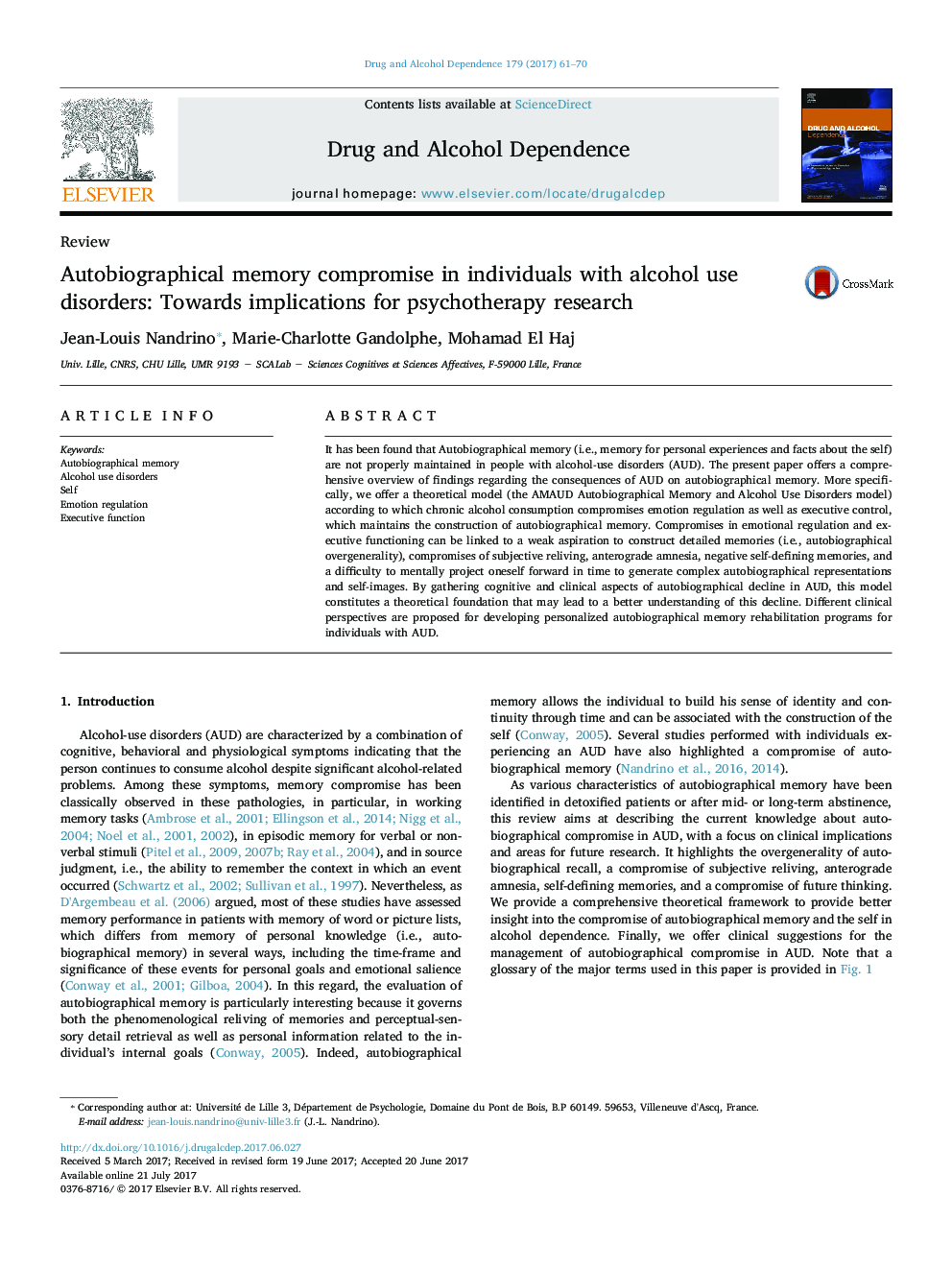| Article ID | Journal | Published Year | Pages | File Type |
|---|---|---|---|---|
| 5119933 | Drug and Alcohol Dependence | 2017 | 10 Pages |
â¢We describe the compromise of autobiographical memory in Alcohol-Use Disorders (AUD).â¢This compromise is related to a decline in emotion regulation and executive function.â¢Autobiographical overgenerality and decline of subjective reliving were observed in AUD.â¢Anterograde amnesia, and negative self-defining memories were observed in AUD.
It has been found that Autobiographical memory (i.e., memory for personal experiences and facts about the self) are not properly maintained in people with alcohol-use disorders (AUD). The present paper offers a comprehensive overview of findings regarding the consequences of AUD on autobiographical memory. More specifically, we offer a theoretical model (the AMAUD Autobiographical Memory and Alcohol Use Disorders model) according to which chronic alcohol consumption compromises emotion regulation as well as executive control, which maintains the construction of autobiographical memory. Compromises in emotional regulation and executive functioning can be linked to a weak aspiration to construct detailed memories (i.e., autobiographical overgenerality), compromises of subjective reliving, anterograde amnesia, negative self-defining memories, and a difficulty to mentally project oneself forward in time to generate complex autobiographical representations and self-images. By gathering cognitive and clinical aspects of autobiographical decline in AUD, this model constitutes a theoretical foundation that may lead to a better understanding of this decline. Different clinical perspectives are proposed for developing personalized autobiographical memory rehabilitation programs for individuals with AUD.
